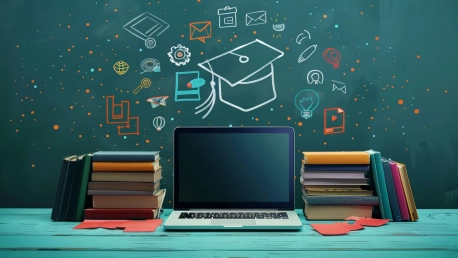With the advent of the digital age, the transformation of education has accelerated at an unprecedented pace. Technological advancements and global connectivity have paved the way for an educational revolution that transcends geographic boundaries. Now, learning extends beyond the traditional classroom setting into the digital realm where resources and courses are readily accessible to students across the globe. This metamorphosis in education promises to democratize learning, fostering a more inclusive environment and equipping individuals with the knowledge and skills needed for a rapidly evolving world.
Democratizing Education Through Digital Platforms
Digital education platforms are pioneering a future where quality education is accessible to a much wider audience. In this digital age, geographical limitations are no longer a barrier to knowledge. Platforms like Khan Academy, Udemy, and MOOCs have emerged, ushering in a new era of learning where anyone with an internet connection can educate themselves. This is more than a mere expansion of access; it’s a fundamental shift towards a more inclusive educational landscape. The reach of these platforms signifies an underlying demand for an education system that is not only accessible but also adaptable to the demands of our digital society.By cultivating online communities where knowledge sharing and interaction flourish, learners acquire a global perspective that traditional classrooms may struggle to provide. This rich cultural tapestry offered through online learning isn’t just about expanding one’s educational horizons—it’s also about preparing students for the multicultural, interconnected professional world that awaits them.
Artificial Intelligence: Customizing the Learning Experience
Artificial Intelligence stands at the forefront of the personalized learning revolution. With AI, the concept of a one-size-fits-all educational approach is becoming obsolete. Adaptive learning technologies are redefining how knowledge is imparted by tailoring content according to individual learning preferences and needs. These intelligent systems analyze a student’s performance, adjusting the complexity of material and providing customized resources to bolster understanding, thus enhancing the effectiveness and efficiency of education.Such personalization has been shown to keep students engaged, a critical aspect of the learning experience. It adjusts to their learning curve and style, maintaining motivation and potentially leading to more favorable outcomes. The integration of AI into learning systems is not just a technological upgrade; it’s a transformative process that promises a more fine-tuned educational experience for learners of all levels.
Overcoming the Digital Divide
Despite the progress in digital education, the divide between the digitally empowered and the underserved remains a stark reality. This digital divide underscores the pressing need to make technology accessible to all sectors of the global population. Bridging this gap is more than just providing equipment; it is about ensuring that everyone has the opportunity to benefit from the vast educational resources the digital world has to offer.Improving digital literacy is a critical facet of this endeavor. Education systems globally need to promote the development of these essential skills, enabling both educators and students to navigate and utilize technological tools effectively. As the digital landscape becomes increasingly central to learning, equipping individuals with these skills becomes not only beneficial but necessary to thrive in the information age.
Innovations in Teaching Methodologies
The digital era has also sparked a renaissance in teaching methodologies. Innovative tools such as multimedia, virtual reality, and gamified learning are integrating into curriculums, offering a more vibrant and engaging educational experience. These advanced technologies are not just add-ons to existing pedagogy; they are reshaping the way educators teach and students learn.The incorporation of such diverse and interactive methods reflects the changing nature of the learner’s environment. Catering to the expectations of a generation accustomed to digital interaction, these cutting-edge teaching strategies are pivotal in maintaining relevance and efficacy in education. They represent a shift towards an immersive learning approach that resonates with the modern student and prepares them for the challenges of tomorrow.
Curriculum Development for a Globalized World
The digital revolution has brought about a swift and significant transformation in the educational landscape. As technology progresses and global connections expand, we’ve witnessed the emergence of an educational overhaul that knows no borders. Today, education breaks free from the confines of bricks and mortar to occupy the vast digital space where learners around the world can tap into a wealth of resources and online courses at their convenience. This evolution in education is paving the way for a democratization of knowledge, creating a more inclusive learning environment that prepares individuals for the demands of a swiftly changing future. The digital age promises equal access to education, dismantling physical barriers and empowering learners with the skills and insights necessary to thrive in an increasingly dynamic global landscape.









